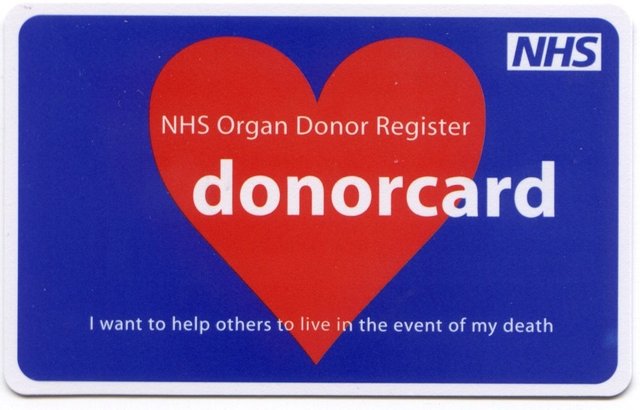Decide-out organ donation register ‘unlikely to increase donations’ | Information


They mentioned donors ought to actively select to be on the register to make sure they genuinely wished to donate their organs and to restrict households from refusing the donation of their kin’ organs.
“They may veto the organ donation if they can’t tell for sure what your underlying wishes were”
Magda Osman
They famous that almost all organ donation legislative methods around the globe, whether or not opt-in or out, embrace a clause that enables the ultimate determination to donate to be made by members of the family.
NHS Blood and Transplant mentioned in 2016 that greater than 500 households had vetoed organ donations since April 2010, regardless of being instructed their relative was on the opt-in NHS Organ Donation Register.
This translated into an estimated 1,200 folks lacking out on potential life-saving transplants, the researchers highlighted.
Plans to introduce an opt-out system in England by 2020 have not too long ago been introduced by the federal government, however the researchers warned this might create ambiguity and never cut back veto charges.
Of their examine, which concerned three experiments, US and European contributors from nations which have both a default opt-in or default opt-out system have been introduced with a fictional state of affairs.
It requested them to tackle the position of a 3rd get together to guage the probability that a person’s “true wish” was to really donate their organs, on condition that they have been registered to donate.
Total, no matter which nation they got here from, the contributors perceived the donor’s underlying choice to donate as stronger beneath the opt-in methods than the opt-out methods. The researcher’s findings have been printed in Journal of Experimental Psychology: Applied.
“All it will do is increase the number of people on the organ donation register”
Yiling Lin
Research writer Dr Magda Osman mentioned: “We present it’s tougher to guage the underlying needs of the deceased in the event that they have been on an opt-out and necessary donation register.
“Making a free choice indicates what your preference is,” she mentioned. “For those who don’t actively select and you might be listed as a donor on the register, then it isn’t clear when you actually wished to donate your organs.
“This matters because if in the event of death your relatives have to decide what to do, they may veto the organ donation if they can’t tell for sure what your underlying wishes were,” she mentioned.
Fellow examine writer Dr Yiling Lin added: “There are plans to launch an opt-out organ donation system in England, but what we show is that this system is unlikely to increase actual rates of organ donation or reduce veto rates, all it will do is increase the number of people on the organ donation register.”
In 2017-18, there have been 6,044 folks within the UK ready for a transplant, whereas 411 sufferers died whereas ready on this record.
Behavioural interventions, reminiscent of nudges, have beforehand been used to supply sensible options which might be based mostly on psychological and behavioural financial analysis.
An instance of a nudge is an automated default – the rationale being that it may bridge the hole between an excellent intention and the trouble wanted to implement that intention into observe.
“To help increase actual rates of organ donation, we need more transplant co-ordinators”
Magda Osman
Dr Osman mentioned: “Our findings are important because they challenge the efforts of many nudge enthusiasts to promote the use of opt-out defaults in organ donation.”
She added: “To assist enhance precise charges of organ donation, we want extra transplant co-ordinators working with households to assist them perceive the problems earlier than being confronted with a monumental and distressing determination.
“We also need to offer people a way to indicate explicitly what they wish to do,” she mentioned. “This could contain an expressed assertion of intention if their want is to donate, or an expressed assertion of intention if there may be an objection to donate.
“This reduces the ambiguity in trying to infer what one wanted to do when it comes to donating their organs,” she added.